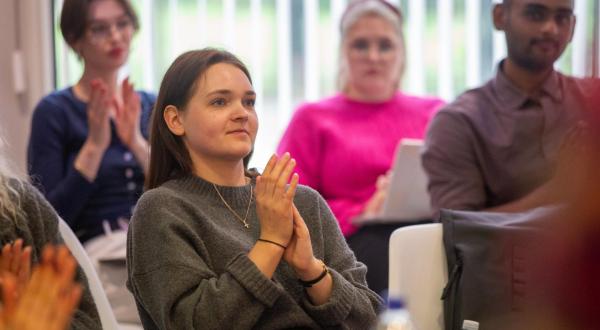Dissertation on Corneal Transplant Refinement, Preparation and Techniques
Descemet membrane endothelial keratoplasty (DMEK) is a type of corneal transplant that has gained popularity for many surgeons in treating specific cases of corneal endothelial failure. DMEK offers early rehabilitation with the best outcomes in terms of visual acuity (VA), that is the ability of the eye to distinguish shapes and the details of objects at a given distance. It is minimally invasive and has a low immunological rejection rate, which is why corneal surgeons favour using it.
Even with these advantages, the technique still requires refinement in terms of tissue preservation, graft preparation, delivery, unfolding and positioning in the recipient’s eye. DMEK tissue preservation could be improved with Metagenomic analysis, a diagnostic approach that was originally associated with the studies of genetic material collected directly from environmental samples. Currently only pre-specified pathogens can be detected by conventional culture-based techniques or Polymerase Chain Reaction (PCR), but there are conditions to state whether metagenomics could revolutionise the diagnosis of ocular diseases. New and improved donor preparation techniques like prestripped DMEK tissues are being taken up rapidly because of less manipulation that is required in the surgical theatre.
Davide Borroni is a PhD student at Rīga Stradiņš University (RSU) who will be defending his dissertation on 21 December 2021. He is the winner of the Doctoral Student of the Year award in 2018.
'In the dissertation, we highlight the importance of defining graft detachment and re-bubbling rates and their surgical relevance, which may also have an impact on graft preparation and insertion techniques,' explains Borroni.
Read more.
The PhD thesis starts with analysing the potential improvements from the eye banking side from the current concepts of DMEK surgery to the surgical applications and innovations. It concludes with tips and tricks for new surgeons.
Scientific supervisors: Dr. med., Zita Krūmiņa (RSU), Prof. Giovanni Porta (Insubria University, Varese, Italy)
Related news
 18 Student teams to start developing their ideas in B-Space incubation programmeFor RSU Employees, For Students, Innovation, B-Space
18 Student teams to start developing their ideas in B-Space incubation programmeFor RSU Employees, For Students, Innovation, B-Space


